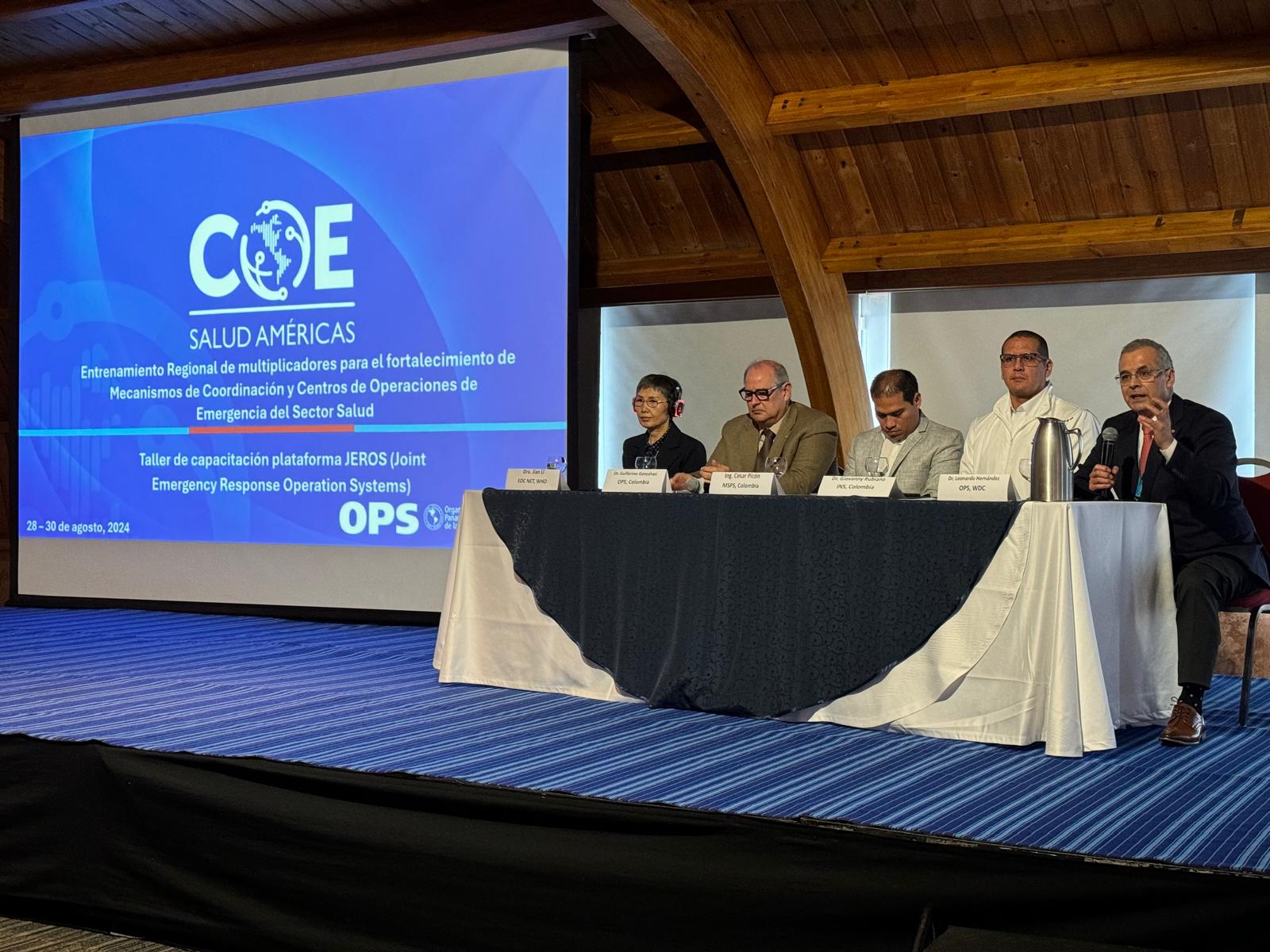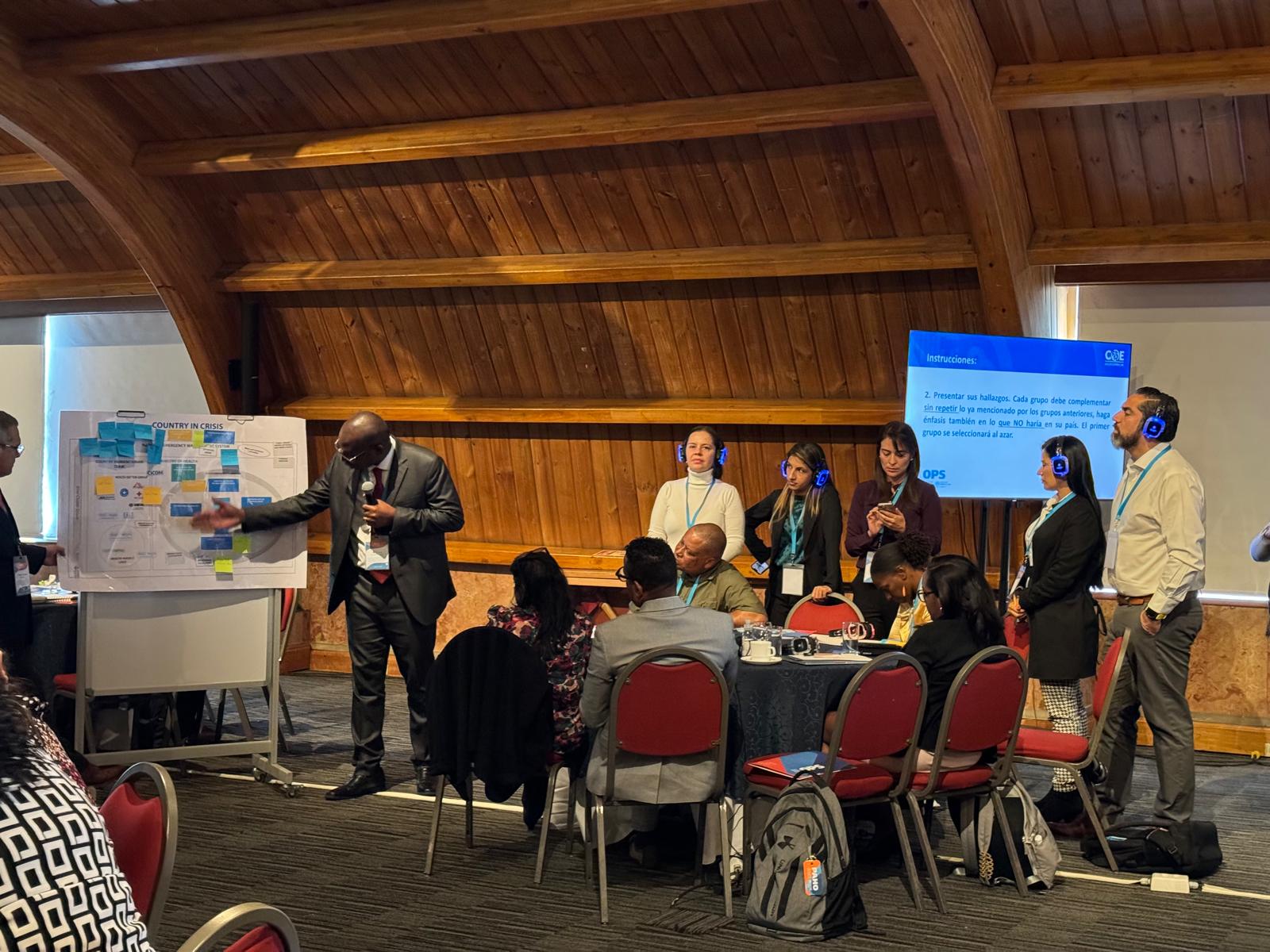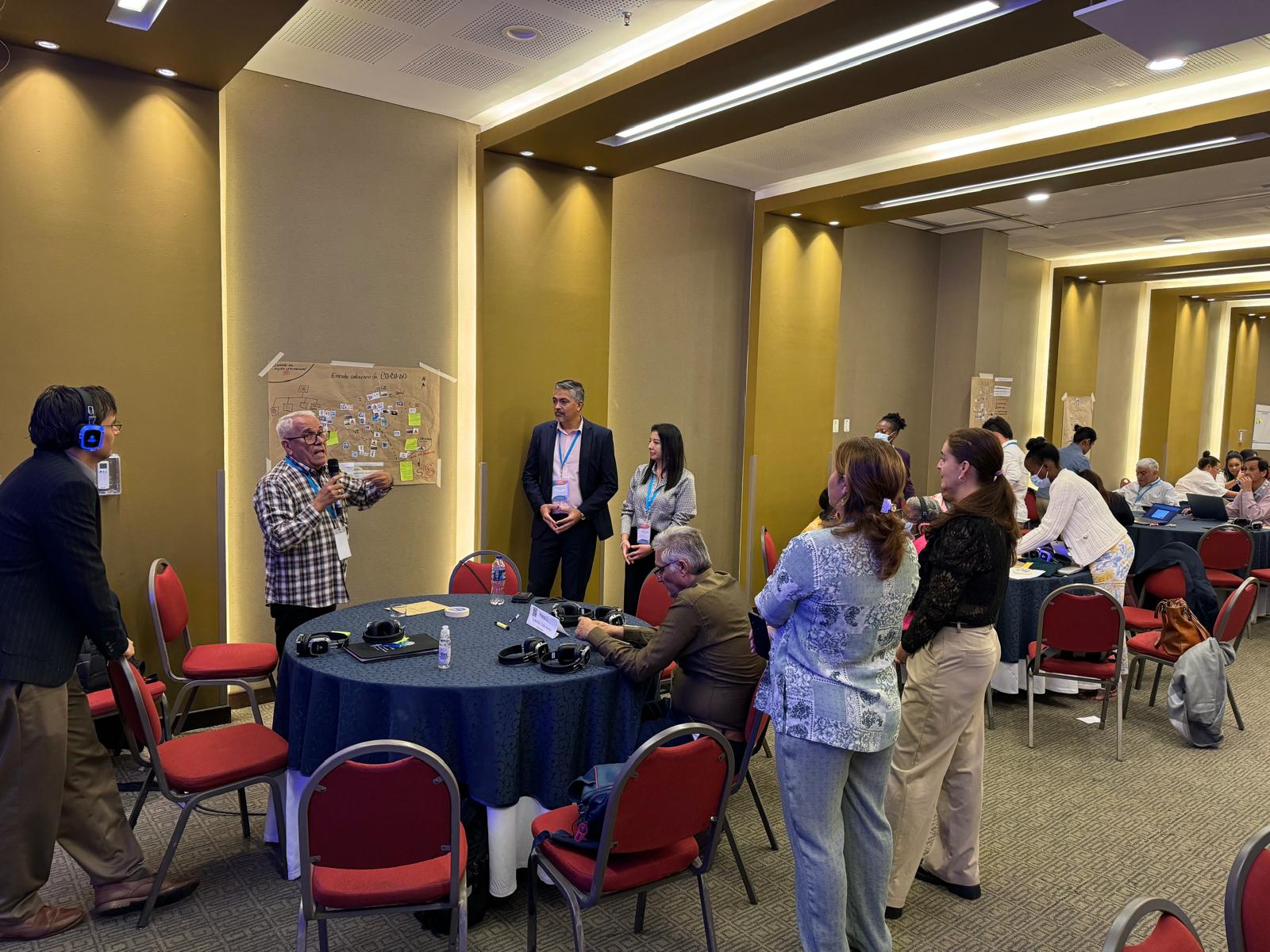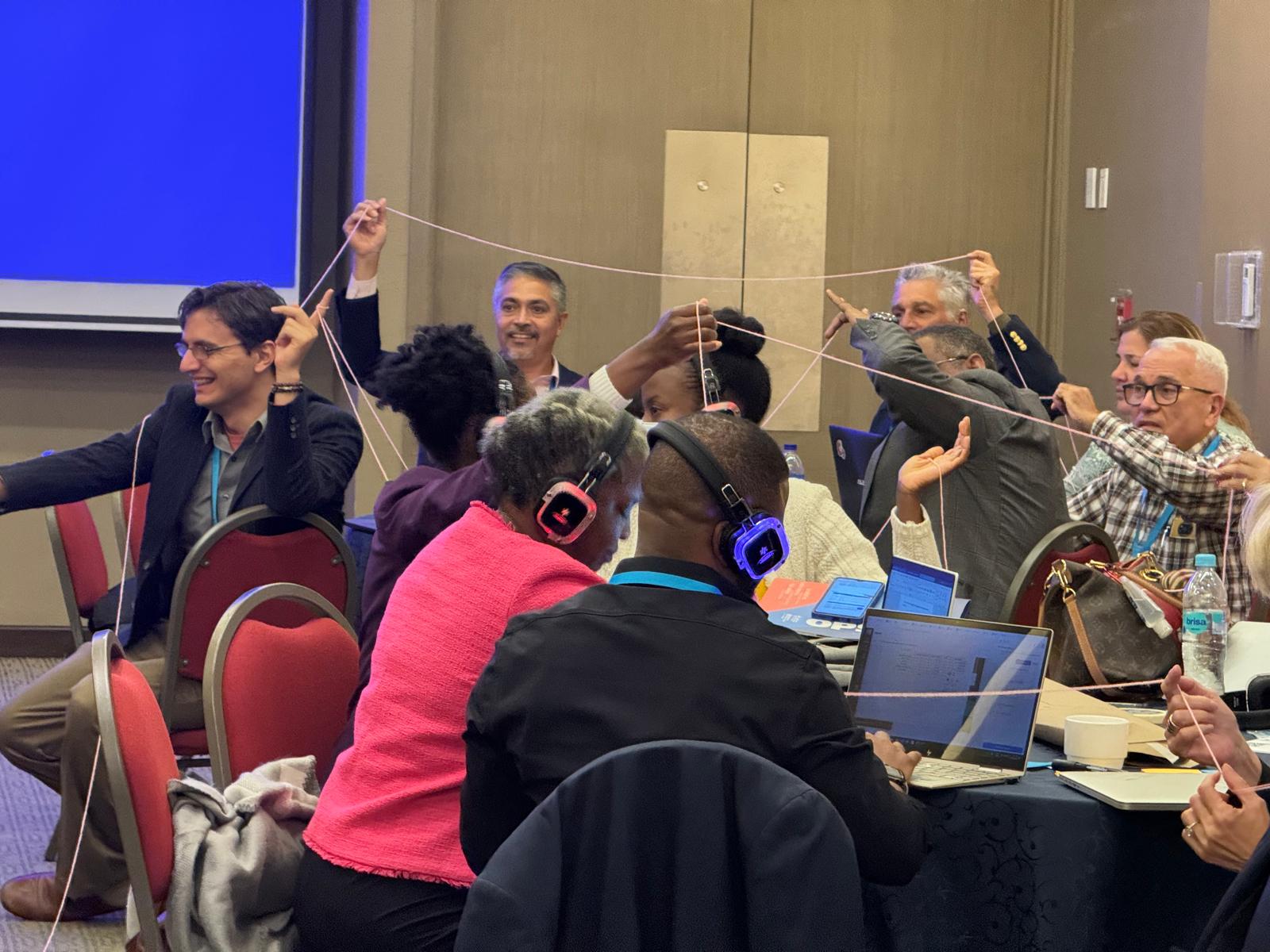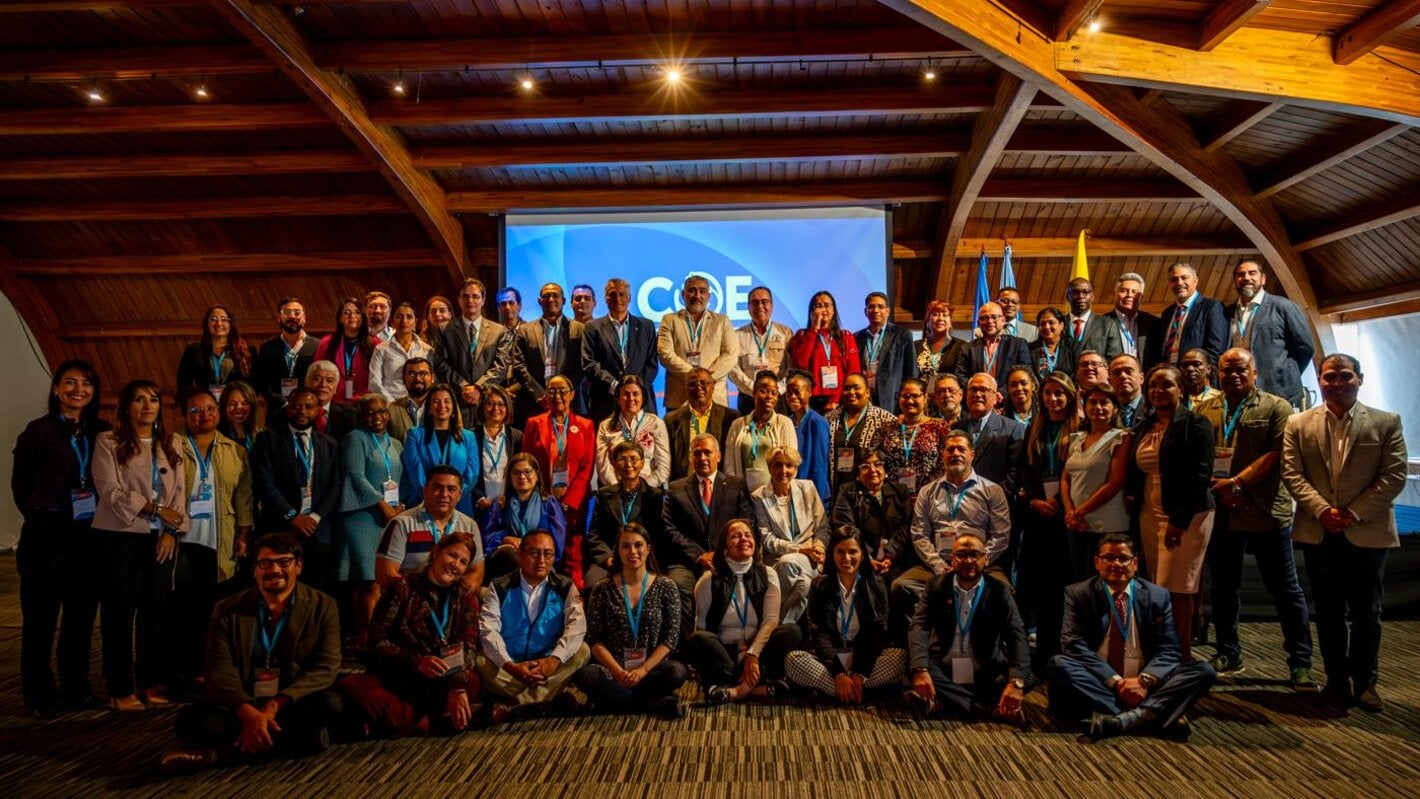
Bogota, Colombia, August 28-30, 2024 (PAHO) – The city of Bogota hosted the "Regional Multiplier Training for Strengthening Coordination Mechanisms and Health Sector Emergency Operations Centers", organized by the Pan American Health Organization (PAHO) through its Emergency Operations Unit (EMO). This highly significant event brought together health sector experts and professionals from 19 countries across the Americas, including Brazil, Bolivia, Colombia, Chile, Costa Rica, Cuba, Ecuador, Guatemala, Grenada, Guyana, Haiti, Honduras, Jamaica, the Dominican Republic, Nicaragua, Peru, Panama, Suriname, and El Salvador. The goal was to enhance the region's response capacity to emergencies and disasters.
During the training, critical challenges were addressed, such as the increasing complexity of health systems and the growing frequency of multi-hazard events, which have involved a greater number of actors in emergency response. This diversity of involved entities had developed their own procedures, making it necessary to establish a comprehensive coordination mechanism to harmonize these systems and optimize decision-making in critical situations.
The workshop focused on reviewing and strengthening coordination mechanisms to ensure that emergency responses are efficient, timely, and coordinated. Participants not only analyzed existing procedures and identified best practices but also engaged in interactive activities such as SWOT analysis (Strengths, Weaknesses, Opportunities, and Threats), where they shared successful experiences from their respective countries. Additionally, group dynamics were conducted to demonstrate and strengthen national capacities in emergency management, facilitating the crucial exchange of knowledge about Coordination Mechanisms and Emergency Operations Centers. This led to the creation of a network of multipliers capable of driving improvements in emergency coordination at both the local and regional levels.
Dr. Leonardo Hernández, Head of the Emergency Operations Unit (EMO), emphasized that "This week of work on coordination mechanisms has allowed at least 19 countries in the region, from the areas of epidemiological surveillance and emergencies, to recognize the need to continue strengthening connections, reviewing procedures, optimizing management tools, and improving information flows. All of this is key to enhancing decision-making in critical situations."
This workshop represents a significant step forward in efforts to ensure a more effective and cohesive health response to emerging threats, consolidating a regional cooperation framework that will facilitate the exchange of information and lessons learned in future emergencies.

